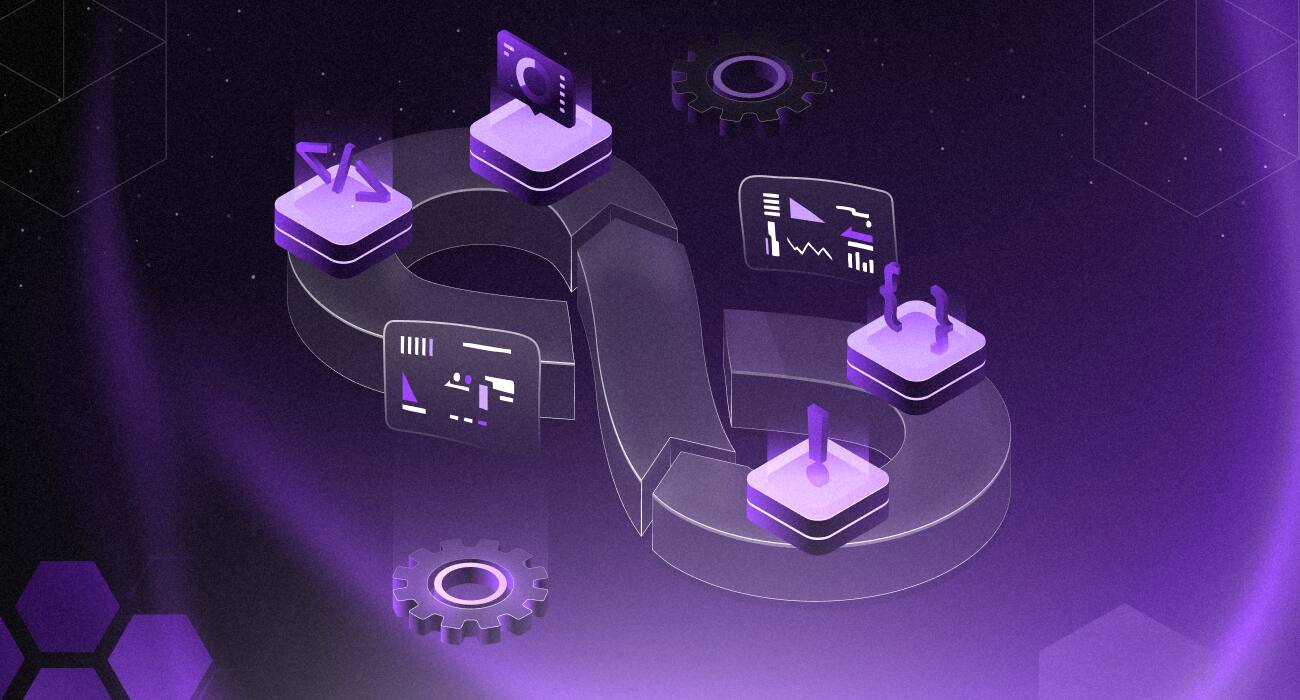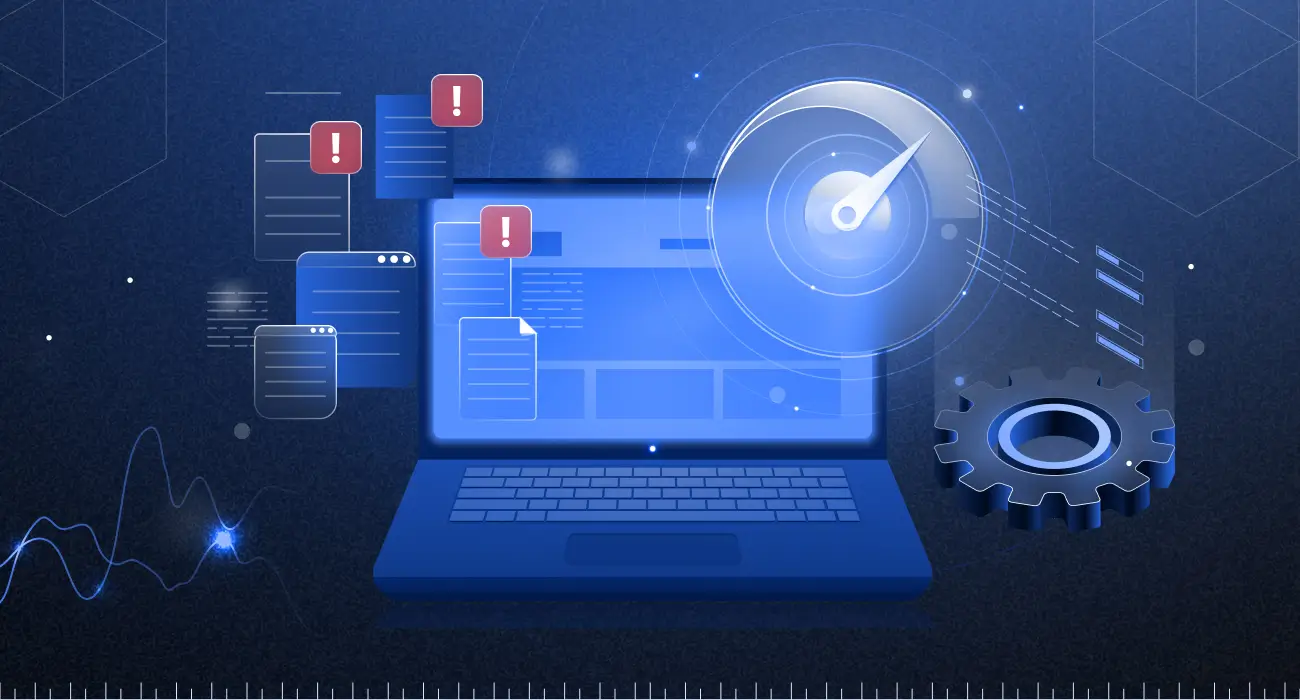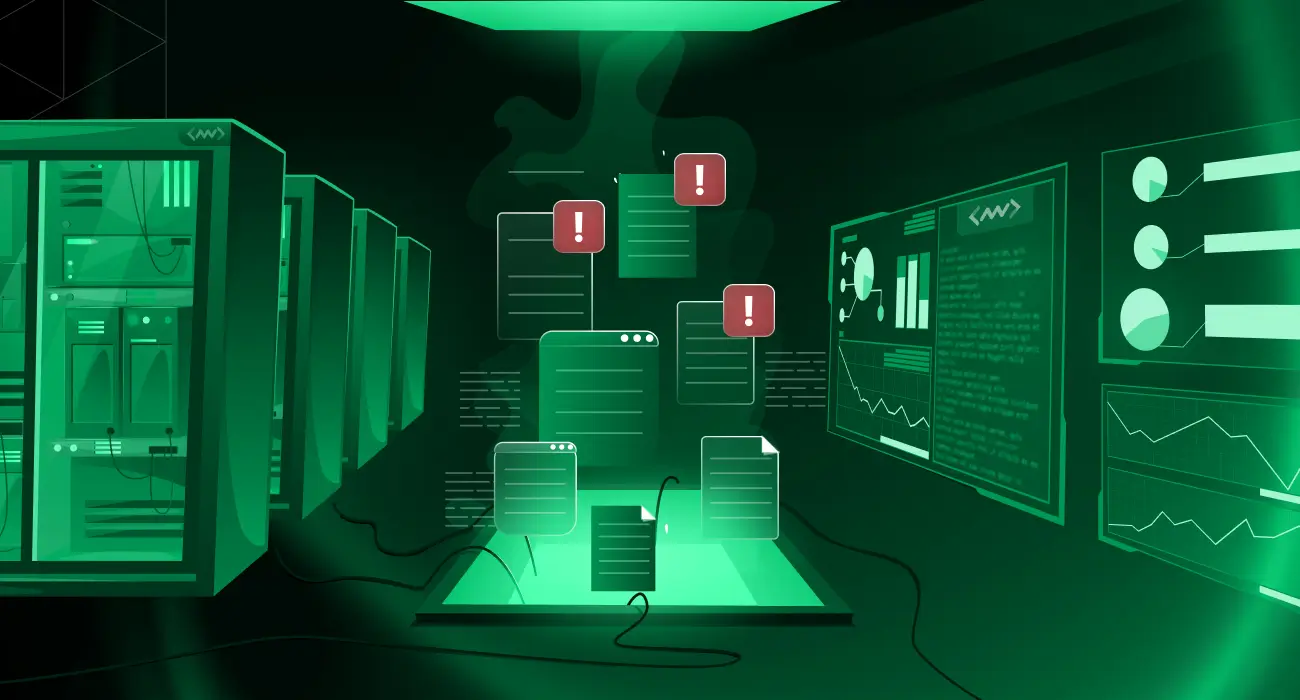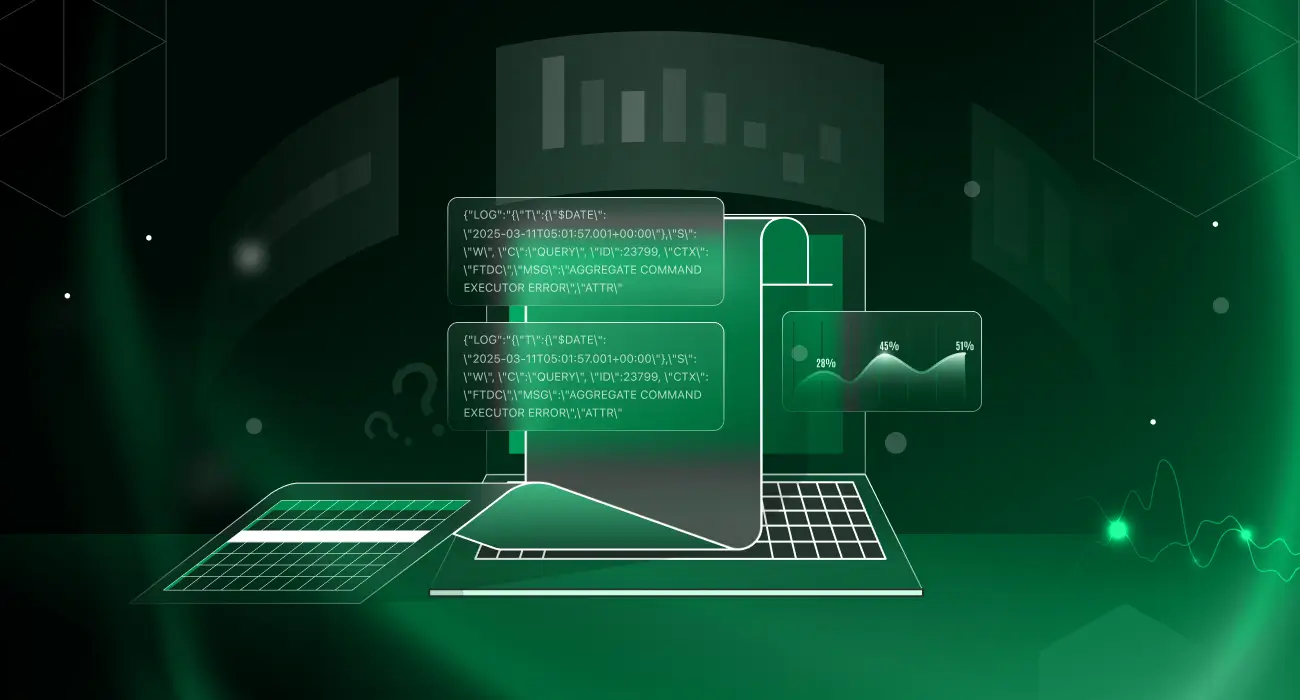DevOps is a growing field that enables you to work on exciting projects and build a wide range of skills. As such, it’s an attractive career path for IT professionals.
Typically, IT organizations are split between development—which builds products—and operations—which manages and maintains them. DevOps sits between these two teams, enabling continuous delivery and improvement.
As DevOps quickly becomes a “must-have” for many organizations, IT teams are able to move new products into the maintenance and management phases immediately upon development. This speeds up deployment time, delivering value to end users faster.
Does this sound like you? If so, there are plenty of reasons why it’s a good idea to pursue DevOps as a career:
- DevOps Engineer ranks in the top five of all tech salaries, commanding an average pay of $111,683 – as per Dice.
- From 2015 to 2019, DevOps job postings grew by 443%
- According to a cursory search of Indeed.com, there are over 10,000 DevOps engineer job opportunities posted at a given moment
Continue reading to learn more about how you can become a DevOps engineer.
Who is a DevOps engineer?
A DevOps engineer is an IT professional with an in-depth understanding of the processes, tools, and methodologies needed throughout the software development life cycle.
In the DevOps roadmap, they touch every stage of development, from coding to maintenance to updates. It requires diverse skill sets, an innovative mindset, and the ability to exercise both lefts- and right-brain thinking.
Ultimately, a DevOps engineer’s primary goal is to create exceptional user experiences by catching issues that create friction. Their key responsibilities include:
- Write documentation for server-side features
- Develop, install, test, configure, and maintain IT solutions
- Communicate operational requirements and development forecasts
- Develop improvement and expansion plans and processes
- Deploy updates into production environments
- Perform routine maintenance and troubleshooting smooth operations
- Perform gap analysis to identify potential enhancements, offer solutions, and assist with modifications.
If any of the above functions sound appealing to you, you may be a good fit for this role.
What do you need to become a DevOps engineer?
Like any IT specialty, DevOps is a specific discipline that requires a unique skill set. Just because you have a development background doesn’t mean you can jump right into DevOps.
However, if you are passionate about evolving practices, willing to work in a collaborative environment, and (most importantly) can pick up new skills quickly, then you certainly can build the skills necessary to succeed at DevOps. Typically, DevOps engineers start as sysadmins, developers, testers, performance engineers, support engineers, etc.
If you’re ready to start, here are some skills you should develop today.
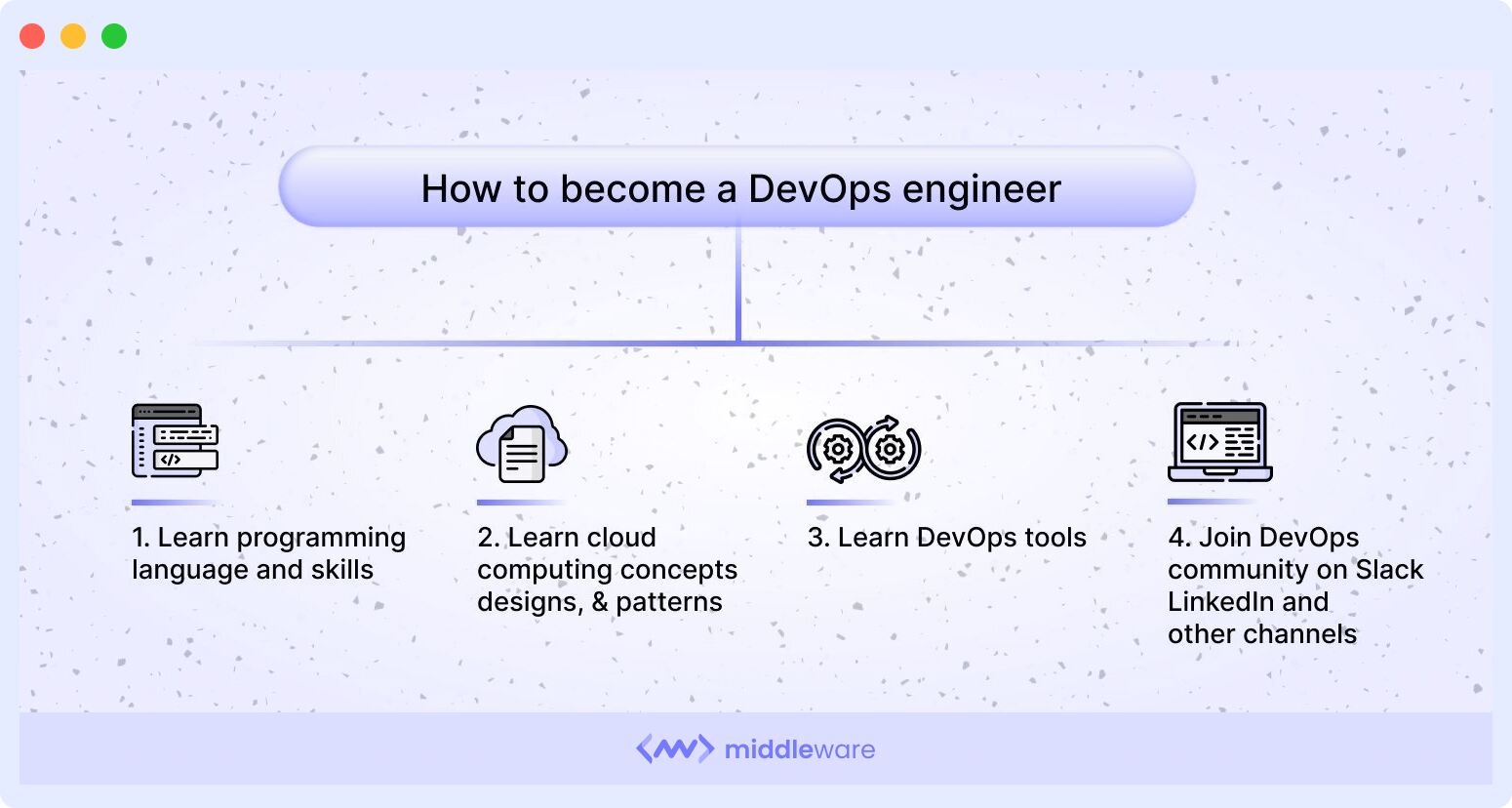
1. Learn programming language and skills
First, DevOps engineers must be familiar with coding and scripting. Without these skills, you won’t be able to automate tasks or work with code repositories.
To the layperson, coding and scripting may seem like two sides of the same coin. However, they’re quite different:
- Coding is the process of creating software or applications using a programming language like Java, Python, HTML, or CSS
- Scripting is a way of automating tasks using a language like Bash or PERL
There are several specific coding and scripting languages you should familiarize yourself with:
- Python
- Java
- JavaScript
- Golang
- PHP
- PERL
- Ruby
Once you master the basics of coding and scripting, you may realize you need to dive into more specific languages. However, you can work to master that once you have the basics down.
2. Learn cloud computing concepts, designs, & patterns
There are a number of cloud computing concepts that DevOps engineer needs to learn in order to be effective in their role. Here are some of the most important to keep in mind.
Cloud providers
The best place to start is understanding the major cloud providers and their unique pros and cons:
- AWS
- Azure
- Google Cloud
When you understand the major players, you can aid in selecting the best option for your finished applications.
Source code management
There are several source code management tools that will help you keep your products organized:
- Git
- CVS
- Mercurial
Management and organization are especially important as you scale up the number of products and projects you manage and are helpful when you have to collaborate with other team members.
Application building
Because DevOps engineers oversee the entire product development lifecycle, it’s important to know the basics of application building from configuration to deployment. This will be critical as you start automating deployment processes to enhance reliability, consistency, and delivery accuracy.
Operating systems
To understand your applications, you need to know the foundation upon which they’re built. The most commonly used operating systems in DevOps are Linux and Windows. While you don’t have to be an OS expert, it’s important to understand key concepts:
- Process management
- I/O management
- Threats and concurrency
- Memory management
Virtualization layer
Virtualization layers enable multiple OSs to run on a single physical machine, increasing efficiency and lowering costs. Familiarize yourself with platforms like VMware, VirtualBox, Hyper-V, and similar systems.
Containerization platform
Containers are similar to VMs, but are more lightweight and have better performance. Familiarize yourself with Docker, Kubernetes, and similar systems.
Configuration management tooling
Configuration management tooling automates the provisioning and configuration of infrastructure components, including:
- Software installation
- System setting configuration
- User account creation and management
Familiarize yourself with tools like Puppet, Chef, and Ansible.
Monitoring & observability
As a modern DevOps engineer, odds are you’ll be working with decentralized, distributed systems and generating terabytes of disconnected data—some of which may contain critical information about your system performance.
As such, it’s important to have integrated observability and monitoring tools to identify key indicators from a single pane of glass and make corrections and changes as they arise. Understanding how to use full-stack observability tools—like Middleware —can help you dramatically improve your DevOps skills.
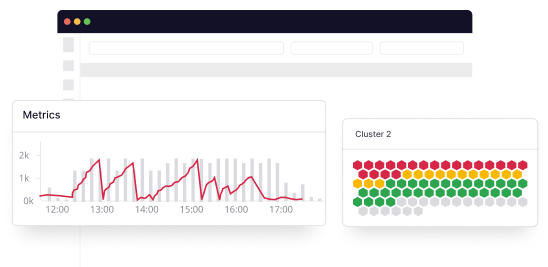
Leverage Middleware to analyze, diagnose & predict issues across your entire stack.
Networking and security
As a DevOps engineer, you’ll be required to deal with various servers, connections, data transfers, and more. You’ll need to understand networking concepts so you can manage IT workflow.
Additionally, part of your responsibilities as a DevOps engineer is to maintain the security of the overall environment. Make sure to familiarize yourself with security best practices for every stage of the environment.
3. Learn DevOps tools
In addition to general cloud computing concepts and tools, as a DevOps engineer, there are some tools that are specific to a job description, but here are the three most important are:
- Application performance monitoring (APM)
- Infrastructure as Code (IaC)
- Continuous Integration/Continuous Delivery (CI/CD) pipelines
Let’s walk through each of these in detail.
Application performance monitoring (APM)
Application performance monitoring (APM) is the practice of tracking performance metrics with monitoring software and telemetry data. APM helps DevOps engineers ensure system availability, optimize performance and improve user experiences.
In today’s digital world, monitoring includes more than just apps and websites. Monitoring now includes all the services, processes, hosts, logs, networks, and end users that access the applications.
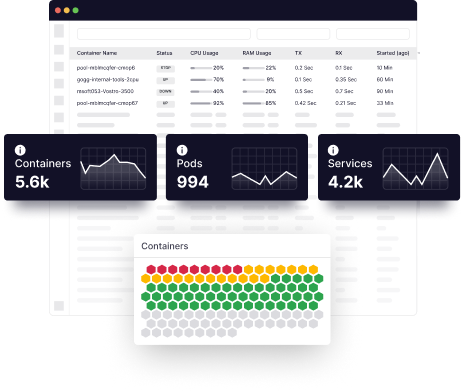
To get real-time metrics, traces and logs in one place.
Infrastructure as Code (IaC)
Infrastructure as Code (IaC) is a methodology that evolved to solve the problem of environment drift in release pipelines. Before IaC, teams had to maintain separate deployment environment settings, with each one becoming a “snowflake” over time—a unique configuration that can’t be reproduced—which leads to inconsistencies that cause deployment issues.
IaC avoids these issues by representing desired environmental states via well-documented code in formats like JSON. IaC is repeatable and can prevent runtime issues caused by configuration drift or missing dependencies. When your IT teams make changes, they do so at the source, not the target.
IaC is a critical component of DevOps and continuous delivery, as it works to define and deploy infrastructures, such as networks, virtual machines, load balancers, and connection technologies. This will enable your teams to work together with a unified set of practices and deliver supporting infrastructure quickly at scale.
CI/CD pipelines
Perhaps the most important thing for DevOps engineers to understand is Continuous Integration/Continuous Delivery (CI/CD):
- Continuous Integration deals with reducing costs and improving efficiencies by integrating code into common repositories.
- Continuous Delivery makes software releases faster and more efficient through the automation of validated code to a repository.
Jenkins, CircleGI, and GitLab are the most common CI/CD tools. To complete tasks Faster, learn some best practices.
4. Join the DevOps community on Slack, LinkedIn and other channels
Success in DevOps is about more than technical skills. It has its own culture: values, norms, and practices. Collaboration, communication, and integration with other professionals are key.
That’s why building your resume and integrating with the online DevOps community is important. You can start by searching for keywords related to DevOps on LinkedIn to spot relevant communities. Once you’ve joined them, you can use LinkedIn automation to network with others to get integrated well into the industry and understand its culture. Key principles of DevOps culture include:
- Automating tasks to increase speed and reduce human error
- Continuously integrating and delivering code so new features can be released faster
- Closely monitoring system performance to identify issues early and prevent them from becoming critical
- Collaboration among teams and functions to get at the best quality product
By learning the DevOps culture, you can start adopting the habits and behaviors that will make you successful in such an environment.
Here are some tips for learning more about and integrating into DevOps culture:
- Find online DevOps communities—like DevOpsCube and DevOps.com
- Attend DevOps events and conferences
- Participate in hackathons to demonstrate your skills.
What are the challenges to becoming a DevOps engineer?
Assuming you work aggressively to adopt the right skills and habits, you can easily become a DevOps engineer in six months. That said, you’re going to encounter some challenges along the way. Here are some to keep an eye out for.
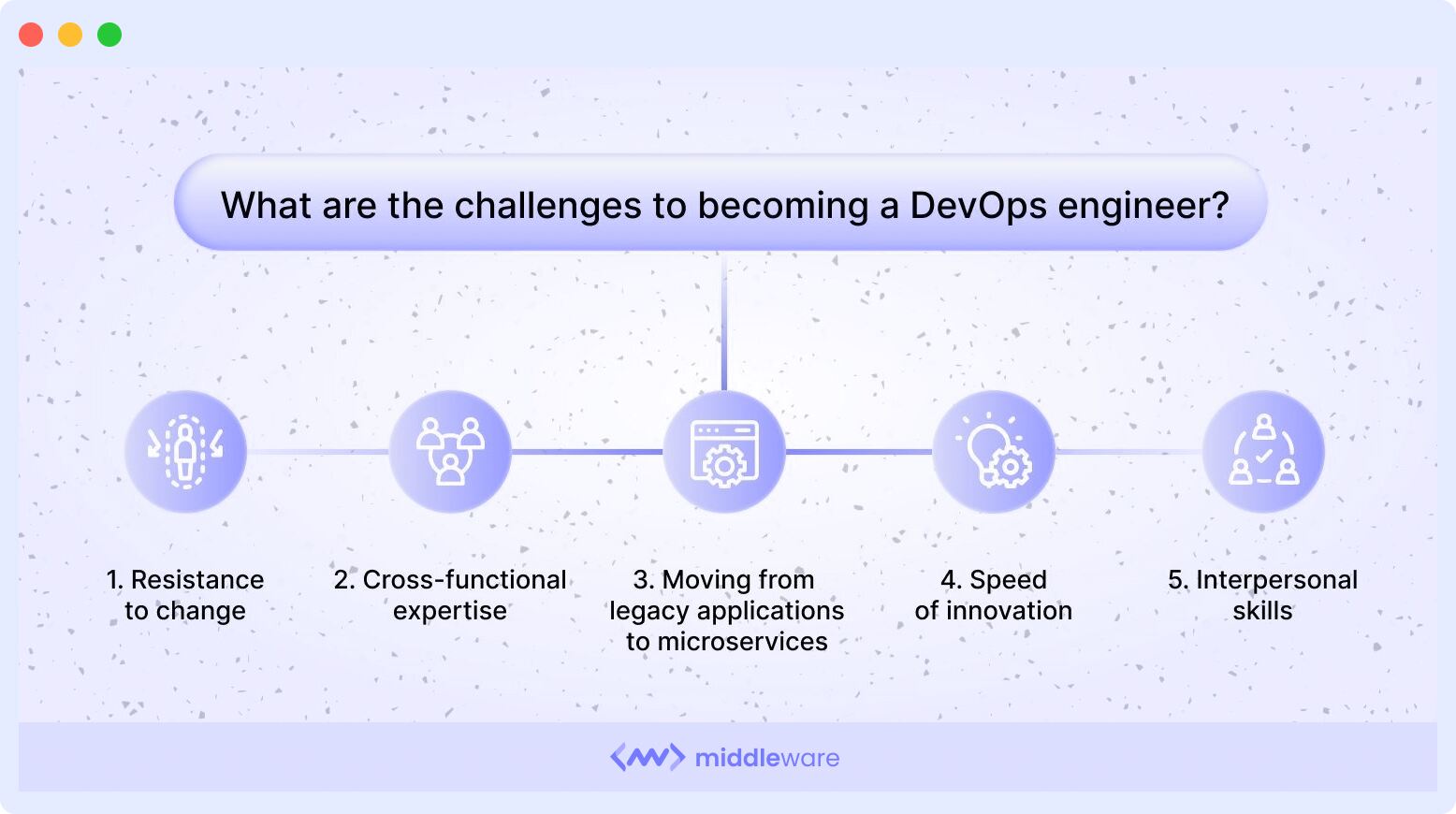
1. Resistance to change
Remember that resisting change is human. You’ll likely encounter this as you go through your training—you may have a way of doing things that will rub up against what’s expected in the DevOps world. Learn to embrace the change, make the transition slowly and incrementally, and be open to learning new ways of working.
2. Cross-functional expertise
If you’ve been a specialist your entire career, you may struggle to become a DevOps engineer. DevOps teams don’t work in silos. You have to be comfortable working across functions and accepting responsibility for features and products across their entire lifetime.
3. Moving from legacy applications to microservices
Technology is constantly evolving. Even if you’re an expert on legacy systems, you won’t be able to rely on that knowledge to be successful in DevOps. Learn about the newer microservices architectures that enable faster development and innovation. And keep learning—because the rate of innovation isn’t going to slow down.
Full-stack observability fills in blind spots and provides IT teams with complete visibility across application components, dependencies, and performance metrics. This enables better understanding of system behavior, performance and health.
4. Speed of innovation
In the same vein, DevOps shortens release cycles, meaning that you have less time to build, test, and deploy changes. It can be challenging for those not accustomed to this speed of innovation. Start familiarizing yourself with automation tools that can make your life and world easier and more efficient.
5. Interpersonal skills
Gone are the days of the anti-social IT engineers who just sit in a room doing code. If you want to be a DevOps engineer, a key skill set will be bringing all stakeholders together—from development to operations to QA, business executives, product managers, and sales and marketing—to collect feedback. Part of your role will be to foster a culture that encourages all teams to work together to deliver value.
What is the salary range for DevOps engineers?
Recent estimates put the DevOps market as growing to $17 billion by 2026. This is an excellent sign of growing demand—which is great for salaries.
According to data from Glassdoor, DevOps engineers are well compensated, with an average $132,000 USD per year in compensation.
Keep in mind that a number of variables go into determining your compensation, including years of experience and demonstrated expertise. That said, DevOps is an excellent choice if you’re looking for a career field with plenty of growth opportunities.
What are a DevOps engineer’s daily and weekly tasks?
So what does this all mean on a daily or weekly basis? How can you expect to spend your days if you choose to become a DevOps engineer?
DevOps daily tasks
Generally, the average DevOps engineer will do the following (almost) every day:
- Monitor Slack for urgent messages and tasks (e.g., if the CI/CD pipeline failed to execute correctly) and fix them
- Work at the automation backlog, a prioritized list of actions aimed at supporting the project’s infrastructure; DevOps engineers may also organize and reprioritize the backlog when necessary.
- Hold team meetings—both internal and external—to ensure continuous improvement, align priorities, and make sure all stakeholders have what they need to move forward.
- Although DevOps methodology isn’t heavy on documentation, engineers still need to maintain records of their daily work—like infrastructure configuration or server information.
- Manage complex infrastructure to mitigate complications in testing automation, code delivery, and code rollback.
- Monitor and troubleshoot failures in the software at hand, resolving issues in real-time to maintain project health.
- Investing in professional development and growth via courses, conferences, books, and community engagement
DevOps’ lifecycle throughout the week
In addition to these daily responsibilities, DevOps engineers will perform the following tasks on a weekly basis.
Deepening understanding of the customer
Successful DevOps engineers should spend some time weekly communicating with clients and stakeholders. By deepening their knowledge of customers’ needs and challenges, they can more efficiently collect and analyze data and turn them into actionable KPIs for both developers and operations.
Implementing CI/CD
As mentioned above, CI/CD is a critical component of the DevOps toolkit. As such, you’ll spend a significant part of your week merging, building, testing, and running code. Additionally, you’ll work in short cycles, finding and fixing bugs efficiently so you can move swiftly from testing to production.
Integrating new tools
Because DevOps is a diverse field, there are a number of tools that can help your team work more efficiently—and the list is ever-growing. Part of your week as a DevOps engineer will be evaluating current tools, combining them to suit the team’s needs best, and identifying gaps that need to be filled.
Long-term projects and impact
At the end of the day, everyone wants a career that’s meaningful and impactful. For the DevOps engineer, your long-term impact will take many forms:
- Continually improving and enhancing the product
- Creating better user and customer experiences
- Serving and supporting development and operations teams in their work
- Contributing to the bottom line by enabling your company to move products into the market more quickly—without sloppy errors and mistakes
Consider the following statistics:
- 61% of companies say DevOps helps them produce higher-quality deliverables.
- 49% say DevOps results in faster time to market
- 49% say DevOps improves their release cadences
If you choose a DevOps career, you can make a difference within an organization. That’s an opportunity you should seriously consider.
DevOps work-life balance
Like any other IT-related career, work-life balance is not a given in DevOps. Companies with less mature processes and unreasonable expectations can create unrealistic expectations and even toxic work cultures.
However, in mature, culture-driven organizations, you can certainly find a way to achieve balance in your work. Because DevOps tools are mostly cloud-based, you can work from wherever you like. With the right automation, you can reduce your workload to allow more flexibility in your schedule.
Final thoughts on how to become a DevOps engineer
If you want a collaborative career field that works across functions and puts you on the edge of IT innovation, you should seriously consider DevOps as an option.
That said, being a DevOps engineer isn’t the end of the journey. Should you choose to continue on, there are several career paths open to you, including:
- DevOps Architect
- Automation engineer
- Software Tester
- Integration specialist
- Security Engineer
- Release manager
So if you’re looking for a way to grow your IT career, build your resume, and participate in some truly innovative projects, then a DevOps career path may be right for you.
Learn more about DevOps opportunities at Middleware here.
